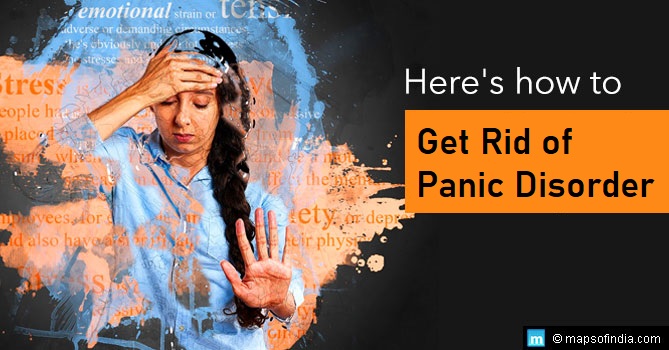Panic disorder is a type of anxiety disorder in which an individual experiences unexpected panic attacks, which recurs multiple times. It is the feeling of terror or fear, and its symptoms reach their peak within a few minutes. This sudden feeling of fear is different from a usual reaction to a fearful situation. Panic disorder often causes severe disruption in an individual’s life, and certain situations easily trigger those individuals.
There are mainly two types of panic attacks: Cued and Uncued.
Cued or expected panic attacks occur due to an apparent cause or a specific trigger, such as any situation or any place. Conversely, unexpected panic attacks occur suddenly with no particular warning or trigger that may cause the panic attack.
What are the symptoms of Panic Disorder?
- Increased heart rate/palpitations
- Dizziness
- Nausea
- Vertigo
- Shaking or trembling
- Chest pain
- Sweating
- Tiredness
- Body aches
- Weakness
- Chillness
- Shortness of breath
- Derealization (feeling of unreality)
- Depersonalization (being detached from oneself)
- Stomach pain
How can Panic disorder be diagnosed?
More than one panic attack in a while does not indicate a panic disorder. According to DSM-5, the criteria for panic disorder is recurrent and unexpected panic attacks for at least a month, and there is the persistent fear of more attacks as well. It also mentions that at least four or more symptoms must be persistent. Medical professionals also look for any other physical health condition, any side effect of a substance, or any other mental disorder such as obsessive-compulsive disorder (OCD), post-traumatic stress disorder (PTSD), or phobias. Psychologists or any other medical expert will look for any of the ones mentioned above during the individual’s diagnosis.
What Causes Panic Disorder?
Panic disorder has no exact cause behind it, but certain factors can be biological, psychological or environmental, that may lead into it, including:
- Genetics– if there is someone in the family with a history of panic disorder, there is a possibility of someone else in the family having it.
- Trauma- Any traumatic event faced by the individual such as sexual abuse, death of a loved one, losing a job or divorce, etc.
The reason behind an individual having panic attacks differs from person to person, just as the symptoms do.
How can the panic disorder be treated?
Like any other mental disorder, panic disorder is also treated through therapy, medication, or a combination of both, depending on individual needs. There are two types of medicines prescribed to individuals with panic disorder: anti-depressants and anti-anxiety drugs.
Another form of treatment is psychotherapy. Types of psychotherapy include cognitive-behavioural therapy or exposure therapy. Cognitive-behavioural therapy helps individuals identify negative or triggering situations/feelings and shift them into positive ones. Exposure therapy includes individuals being exposed to the triggering situations or objects and strategizing ways to handle them.
The panic disorder should not get ignored. If you feel or see anyone with the symptoms persisting for a long time, take professional support as soon as possible.




